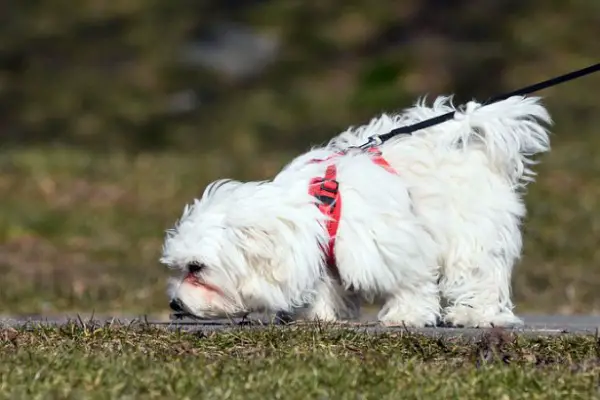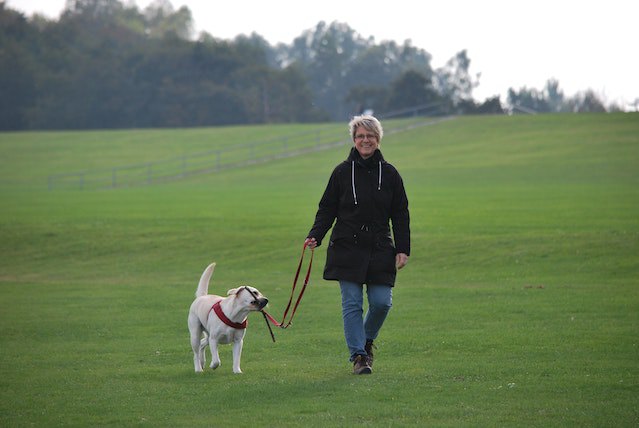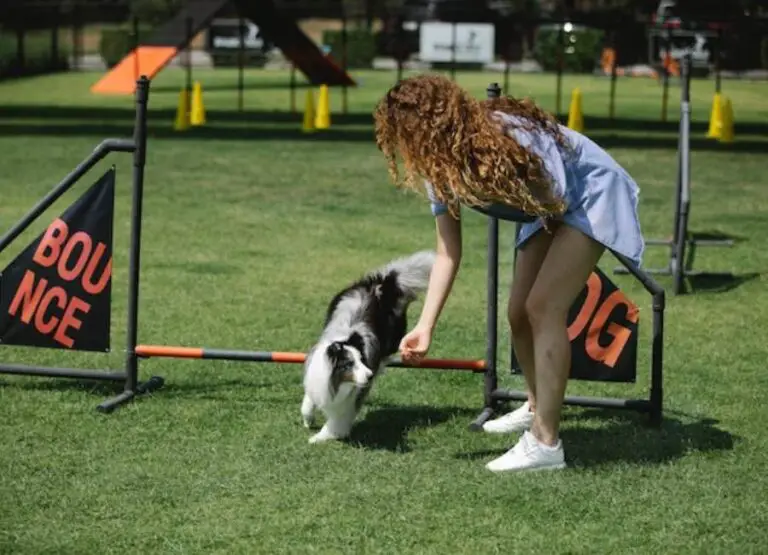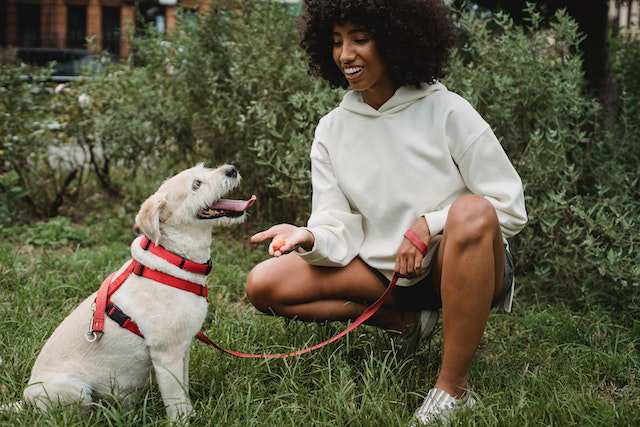8 Common Maltese Behavior Problems & Tips

The Maltese dog is an excellent companion breed, but what are the common Maltese behavior problems you should know! Let’s find out.
This post was written after careful research on the Maltese breed and set interactions with real owners of the Maltese dog.
I also made online research before writing this post, therefore what you get in this post is mostly a result of my interactions with Maltese owners.
So… Let’s go through the common Maltese behavior problems you should know.
Maltese behavior problems
Although the Maltese dog is a popular and adorable little dog breed, it has a number of behavioral issues, including separation anxiety, barking, destructive chewing, begging, housetraining issues, leaping on humans, and nipping at kids.
The following are some of the most prevalent Maltese behavior problems to be aware of, as well as some helpful solutions:
1. Maltese are prone to separation anxiety
Separation anxiety in Maltese is a behavioral issue that occurs when a Maltese is left alone for a prolonged amount of time without supervision.
Separation anxiety, if not handled or resolved, can lead to biting, excessive barking, and animosity.
Separation anxiety in Maltese is manifested by biting, nipping, barking, self-isolation, destructive chewing, and other behaviors.
When a Maltese is left alone at home, separation anxiety can develop, which can be reduced by having a buddy or practicing effective crate training.
Common ways to prevent separation anxiety in Maltese include:
- Make an anti-anxiety or medication purchase with your veterinarian’s approval.
- Make sure there are lots of soft and fascinating toys to keep your Maltese occupied.
- Provide lots of opportunities to rest, relax, and exercise with your Maltese dog.
- Begin a new, appropriate crate training program for your Maltese dog.
- Make an appointment with a behaviorist for your pet.
- Teach them to leave you alone at home and to keep a safe distance from you.
- To burn off surplus energy, exercise your Maltese before leaving.
- Provide a view of the outside world through a window.
- Provide a soothing and stress-free area with calming music.
2. Excessive barking when left alone
Maltese are a naturally non-aggressive tiny dog breed that has never been known to hurt other dogs or children because they were intended to be human companions.
A Maltese dog can bark excessively, and one of the best methods to minimize excessive barking is to properly socialize your Maltese dog as soon as possible.
Maltese bark unnecessarily, and this barking can come at odd hours of the day.
They also use barking as a means of communication, which can sometimes be an issue for their owners.
Ways to stop Maltese from barking include:
- Ignore unnecessary barking.
- Invest time to create training your Maltese.
- Teach your Maltese to ignore distractions.
- Provide a stress-free environment for your Maltese.
- Provide a bark collar.
- Socialize your Maltese from the puppy stages.
- Desensitize your Maltese from any fear factors.
- Pay more attention to your Maltese needs.
- Avoid separation anxiety and stress.
3. Destructive behavior of chewing valuables
Chewing is a common habit for Maltese dogs, but if your Maltese chews on items that aren’t meant to be eaten, such as shoes, furniture, or electrical wires, chewing may rapidly become a behavioral issue.
To keep your Maltese dog busy and encourage healthy chewing, provide plenty of toys and chews.
Objects that you don’t want chewed can be removed or sprayed with Bitter Apple, a material that leaves a bad taste in their mouth.
When bored or lonely, Maltese chew whatever they can get their hands on, including valuables.
Controlling a Maltese dog’s destructive chewing behavior include:
- Invest in numerous chewing toys.
- Furniture should be sprayed.
- More mental stimulation of your Maltese is required.
- Make sure your Maltese gets enough of exercise.
- Proper crate training sessions are required.
- Puppy proofing your house is a good idea.
4. Clingy and needy behavior
While some people find it unpleasant that their Maltese dog follows them around the house asking for affection, others find it amusing.
When it comes to asking for attention by barking, biting, or nipping, Maltese dogs are no exception.
A Maltese dog is not for you if you do not want a loving dog that requires constant attention.
Maltese dogs make wonderful companion dogs that spend their days with their owners; nevertheless, if not properly managed, they may become a significant problem.
Clingy and needy behavior in Maltese dogs can be controlled in the following ways:
- Obedience training should be prioritized.
- Teach the directions “sit” and “remain” to your Maltese dog.
- Allow yourself enough time to properly crate train your Maltese dog.
- Provide a wide range of entertaining and engaging toys.
- Provide mentally stimulating activities, such as puzzles.
- At all times, give your Maltese dog a job to do.
- Make a daily agenda for yourself and stick to it.
- Make sure you’ve established some ground rules.
5. Leaping and jumping on their owners
Maltese dogs are known for leaping and jumping on their owners to greet you and express their delight at your homecoming.
While leaping is enjoyable, it is not always suitable, and this might soon become a serious issue.
Maltese dogs are noted for leaping up and down to welcome their owners and visitors.
One of the most fundamental strategies for preventing your Maltese dog from leaping on you or another person is to teach them to control their excitement.
Stop your Maltese dog from leaping on people by following these steps:
- Have someone approach your Maltese while he is on a leash.
- Toss a couple treats on the floor before the person approaches your Maltese.
- While your Maltese is eating from the floor, let him or her to touch and meet you.
- Request that the individual step away from your Maltese before they finish eating.
- After a few repetitions, repeat the actions above, but this time extend the welcome by placing treats on the floor.
- Allow your Maltese to greet the person once all four feet are on the ground before placing the first reward on the ground.
- You may progressively lower the quantity of treats you give your Maltese as he learns the rules, until the greeting is the only thing he receives.
6. Maltese dogs show bossy or dominance behavior
If you have children, Maltese dogs are known for being demanding and forgetting their size, which can be a serious concern.
It’s vital to properly socialize your Maltese dog to avoid domineering behavior.
The desire for your Maltese dog to take the lead while you follow can lead to a range of behavior problems that, if not handled, can end in unneeded enmity.
What to do if your Maltese dog has a bossy or dominance problem:
- As soon as possible, establish yourself as the pack’s leader.
- As soon as possible, establish rules, constraints, and boundaries for your Maltese dog.
- Insist on proper behavior.
- When conversing, use good energy.
- Learn how to behave like an alpha male.
- Be consistent and fair when it comes to correcting incorrect behavior.
- Be consistent and accurate when it comes to rules.
- Teach your Maltese dog how to obey commands.
- Learn how to manage and limit the amount of time your Maltese dog spends eating.
- At all times, give your Maltese dog a job to do.
- It is critical to provide positive reinforcement.
- Submissive behavior should be commended.
7. Difficulties in house-training
The act of teaching a dog to defecate outside or in a specified location within the house rather than following its natural propensity of pooping everywhere is known as housetraining.
Because of their domineering disposition, housebreaking a Maltese dog can be difficult. Expect to train in sessions for one to two months.
Even after you’ve accomplished potty training, your Maltese dog may make blunders.
However, once you’ve finished it, you may expect to see a cute dog.
One of the most common difficulties with Maltese behavior is housebreaking.
When you first obtain a Maltese, make an effort to focus on house training right away.
Ways to help Maltese dog with housetraining concerns:
- During potty training sessions, don’t overfeed your Maltese.
- During the house-training process, don’t keep your Maltese on a leash when you’re not around.
- During the house-training process, provide your Maltese dog a choice of areas to relieve himself.
- During the housetraining process, take your Maltese to the potty at least once before sleep.
- Potty training your Maltese dog should begin the day he arrives at your home.
- Do not yell or hit your Maltese dog if he makes a mistake.
- During the house-training process, make no significant changes to your Maltese dog’s normal routine.
- Throughout the housetraining process, feed your Maltese dog at the same time and in the same manner.
- Make the toilet as accessible as possible during and after the housetraining exercise.
8. Always begging for food
It may be difficult for the owner to ignore the Maltese’s enticing expressions, which promote begging.
Despite the fact that begging is a bad habit to have, many Maltese owners reward their dogs by feeding them as they eat.
Weight gain, gastrointestinal difficulties, and even persistent diarrhea are all possible side effects.
The simplest way to avoid this annoying behavior is to never encourage it in the first place.
What can I do to stop my Maltese dog from begging?
- When your Maltese is begging, don’t stare at him.
- When your Maltese is begging, don’t talk to him.
- If your Maltese dog attempts to leap on you while begging, twist and turn away.
- Teach your Maltese to do more than sit at the table asking for food.
- While you eat, confine your Maltese to his room or space.
- When it’s time to eat, place the bowl near the table, so your Maltese dog believes he’s at the table with you.
- Teach your Maltese that begging is a negative behavior by using positive reinforcement.
- Ignore begging Maltese and divert them.



![Do French Bulldogs Bark A Lot [10 Bark Triggers] Do French Bulldogs Bark A Lot](https://petcreeks.com/wp-content/uploads/2021/07/Do-French-Bulldogs-Bark-A-Lot-768x644.jpg)


